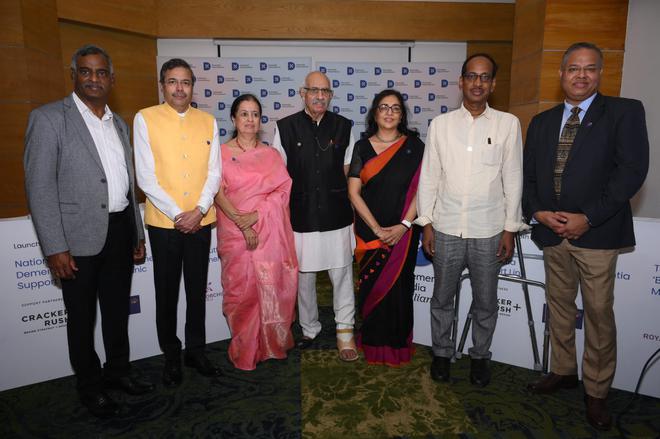To assist individuals and families facing the challenges of dementia, a neurodegenerative brain disease, Dementia India Alliance (DIA), a non-profit, family carer-centered organisation, launched a national dementia support line and DemClinic, an online memory screening clinic, on September 5.
The support line services include information, support and guidance, and promotion of timely diagnosis, intervention through online memory screening services.
“All services provided through this support line will be offered entirely free of cost, ensuring access to crucial assistance to all. The free online memory screening aims to mitigate the stigma and encourage senior citizens to get an assessment to promote early diagnosis,” said Radha S. Murthy, DIA president.

Addressing mediapersons in Bengaluru, Dr. Murthy said the support line will operate from 8 a.m. to 6 p.m. all through the week, except on Sundays. Services will be offered in English, Hindi, Tamil, Malayalam, Kannada, and Telugu languages.
“Trained psychologists and social workers will be at the forefront of addressing callers’ needs, providing empathetic and informed assistance. For those seeking guidance, support, or assistance related to dementia or memory-related issues, the support line can be reached at 8585 990 990,” she said.
DemClinic is an initiative to support families and persons with dementia
“The DemClinic will be the first national comprehensive expert-led cognitive assessment platform for the elderly. The initiative is aimed at supporting families and persons with dementia through post-diagnostic care and support,” Dr. Murthy said.
DIA secretary Shyam V. said, “There is a dearth of memory clinics, psychiatrists, geriatricians and neurologists in India. This virtual platform is expected to help those with dementia and their families get timely diagnosis and expert advice for post-diagnosis clinical management. Post-screening, individuals who require medical assistance will be guided to senior psychiatrists, neurologists and geriatricians, whose services will be offered at a reasonable cost. Twelve experts have been empanelled for the DemClinic.”
DemClinic leverages telemedicine technology to increase access to diagnosis and care. This virtual platform features interactive videoconferencing with experts — one of its key services. The consultation will include a detailed history and neuropsychological evaluation once clinicians have enough information to establish a probable diagnosis, advice on management, and medication will be provided. Periodic follow-up and continuum of care are essential caveats of the services.
Significance of Blue Button in dementia
That apart, DIA will organise ‘The Blue Button Movement’ on September 21 to mark World Alzheimer’s Day. The blue button is a symbol of awareness and support for people afflicted by dementia.
This campaign will include formation of a human chain symbolically resembling the blue button, like a shield or a coat of arms, unifying and encouraging people to recognize the impact of dementia, empathize and take proactive steps to support patients. It will be in line with programmes organised worldwide to raise awareness, remove the stigma and build appropriate support systems for dementia. The campaign will be organised in Bengaluru, Hyderabad, Chennai, Visakhapatnam, Delhi, Gurugram, and Kochi. A large number of caregivers, senior citizens, healthcare professionals, and those concerned with dementia are expected to participate in the campaign.
Ruhi Sridhar, co-founder of Cracker + Rush, who has designed the logo for DIA, said the Blue Button carries deep symbolism for those affected by dementia. The ability to button one’s own clothes is a sign of independence. The loss of this ability is an early indicator of the onset of dementia.







